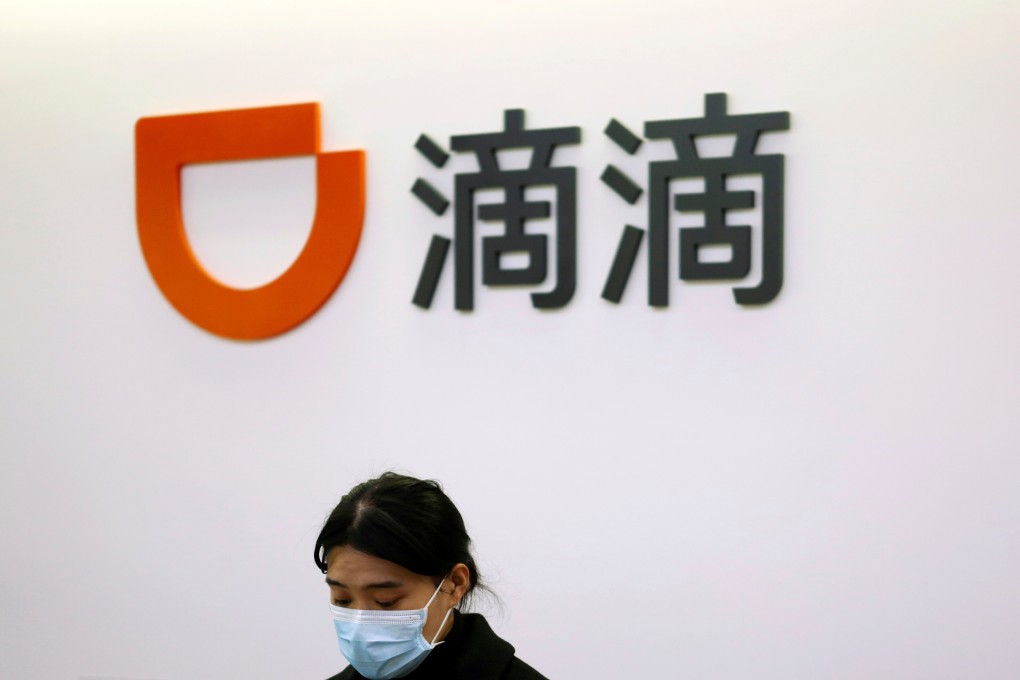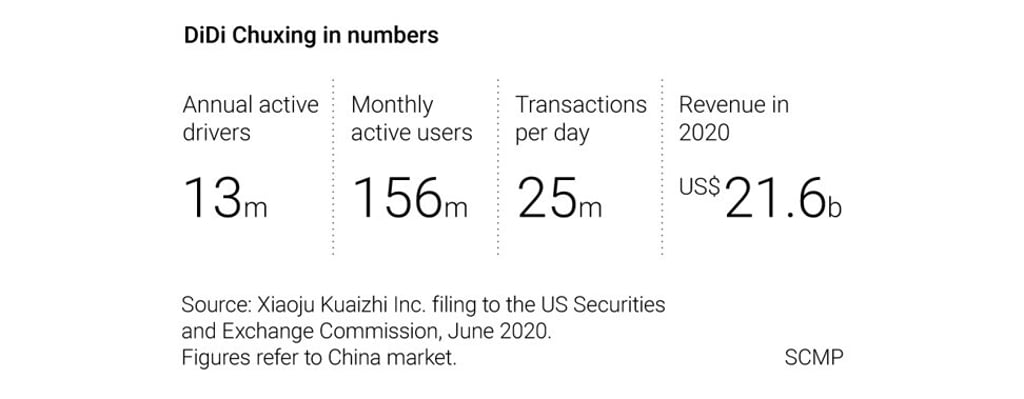Advertisement
Didi Chuxing sued by American shareholders over stock plunge caused by Chinese regulatory changes, data-collection inquiry
- The ride-hailing giant lost US$15 billion in market capitalisation on Tuesday alone after rapid-fire moves by watchdogs unnerved investors
- Didi’s New York IPO was the biggest by a Chinese company in the US since 2014
Reading Time:2 minutes
Why you can trust SCMP
11

Didi Chuxing is facing a new problem: angry American shareholders.
The operator of China’s dominant ride-hailing app is facing at least two lawsuits filed in courts in New York and Los Angeles this week and investigations by at least half a dozen law firms seeking to bring additional class-action litigation against the company and its underwriters after its shares plunged.
Last week, the Cyberspace Administration of China (CAC) announced it was conducting a review of Didi’s data-collection policies on “national security” grounds days after the firm’s US$4.4 billion initial public offering in New York and ordered app stores to drop Didi from their platforms in China over the weekend.
Advertisement
This week, China’s State Council announced a sweeping overhaul of its regulations on how companies raise money both at home and overseas, with the country’s technology sector firmly in its crosshairs. The changes could hinder dozens of Chinese companies who have filed or are preparing to file for listings in the US.

Advertisement
A Didi representative did not immediately respond to a request for comment on Thursday.
Advertisement
Select Voice
Select Speed
1.00x